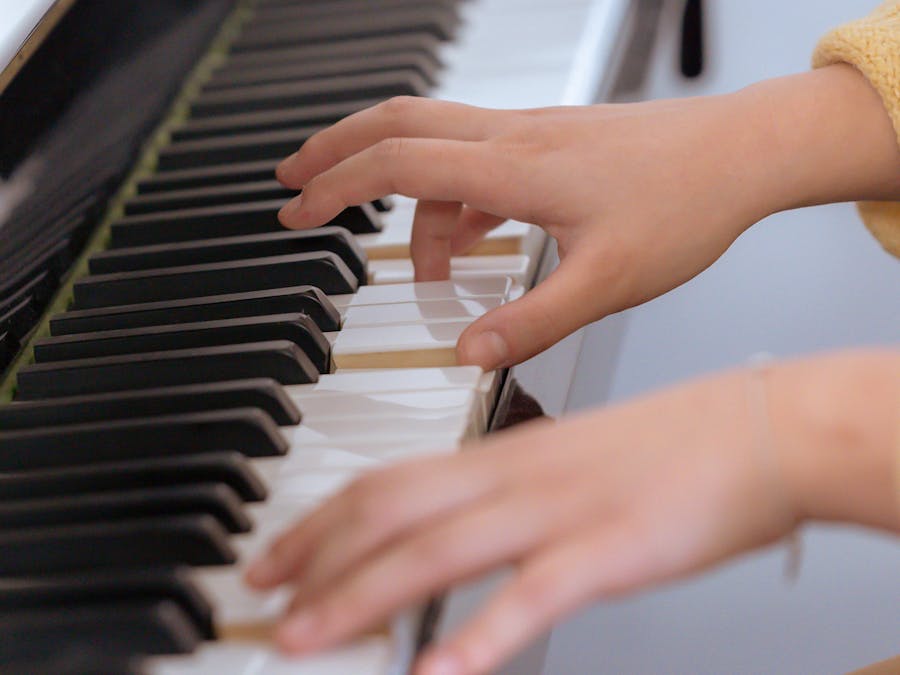 Piano Guidance
Piano Guidance
 Piano Guidance
Piano Guidance

 Photo: Charles Parker
Photo: Charles Parker
Playing piano by ear is not necessarily something you're born with. Of course, many people are able to play by ear without any training; they seem to have a gift for it. However, it's absolutely possible to learn how to play by ear if you've got a solid grasp of harmonic structure and chords.

It means practicing and perfecting a piece of music until it's like you're “speaking” through that music. It's using dynamics, timing and all of...
Read More »
According to the Guinness Book of World Records, the loudest (and largest) instrument in the world is the Boardwalk Hall Auditorium Organ. This...
Read More »
20% is the REAL standard for tips Industry insider: common consensus says 15-20% is considered a normal tip, but honestly any amount less than 20%...
Read More »

Pianoforall is one of the most popular online piano courses online and has helped over 450,000 students around the world achieve their dream of playing beautiful piano for over a decade.
Learn More »Learn time signatures. A little experiment for you. Listen to this piece. You might be able to pick out the chords, but can you pick out the time signature? I’ll give you a hint; it’s 5/4. Now, if you weren’t able to figure that out yourself, you wouldn’t be able to play along with or accompany a band playing this music. This is why it’s very important to be able to figure out the time signature that you need to play in. Practice, practice, practice your scales and arpeggios. I can’t stress this enough. This will help you immensely with chord improvisations, but also with working out melody and harmony of any piece you will need to play. Of course, many people say that playing music by ear is easier than learning how to read music. But if you need to do all this stuff in order to be an expert at playing by ear, is it really that much easier? The Benefits of Reading Music A little off topic; I know this article is about playing by ear, but there is definitely something to be said about learning to read music. You might have already decided you want to play by ear, and that’s fine - there is merit to doing both. In fact, that’s what I’d suggest - learning to do both. That makes you a much more versatile musician, with the ability to play in a wealth of styles and genres. Reading music gives you the flexibility and the skill to play almost anything; and as I’ve said, it’s not a case of doing one or the other. In many ways, learning to read music can actually help you to play by ear more efficiently. While it’s absolutely a great skill to be able to just play something by hearing it, in my opinion there’s nothing more liberating than being able to sit down in front of a piece of music you’ve never seen before, and just play it. If you can sight read, and you can read music well, you will be able to play anything. One thing that's really important to note when you're learning to play the piano by ear is to practice properly. I'd really recommend you read up on effective practice and using a metronome; both articles on this website that I think will help you. Conclusion Reading music is a great skill. Playing by ear is a great skill too. I’d recommend becoming good at both. However, if you really want to play piano by ear, you’re going to have to work at it, unless you’re immensely talented. Make sure you have a solid grasp of music theory. Know popular chord progressions inside and out. Know every scale in every key imaginable. This will make playing the piano by ear absolutely effortless.

"White noise has no general effect on cognitive functions. Instead, [it has] differential effects on perception and cognition depending on a...
Read More »
Audiation is a vital skill for playing music by ear. Edwin Gordon, originator of the term, describes audiation as: "the foundation of musicianship.
Read More »
B Major. Uncontrolled passions. Angry, Jealous, Fury, Despair, Burdened with negative energy. May 31, 2022
Read More »
Music first arose in the Paleolithic period, though it remains unclear as to whether this was the Middle (300,000 to 50,000 BP) or Upper...
Read More »
Look for an ultraviolet torch. Hold it above the piano keys. If you notice the keys reflect either bright white or violet-blue colours, the keys...
Read More »
The app is FREE and available on all iOs devices and Android.
Read More »